Einaudi Center for International Studies
Deadly Earthquake Hits Afghanistan: What We Know So Far

Noor Ahmad Akhundzadah, SAP
Noor Ahmad Akhundzadah, a visiting scholar at Cornell University, commented on Afghanistan’s construction vulnerability and the importance of modern seismic standards.
Additional Information
Lisa Cook Hints ‘Clerical Error’ to Blame for Any Mortgage Application Discrepancy

Robert Hockett, CRADLE
Robert Hockett, a Cornell Law School professor, offered commentary on the legal strategy used in Cook's defense.
Additional Information
Global Research Fellows
Application Deadline: September 28
We invite you to join Einaudi's new interdisciplinary research and professional development community for advanced graduate students, Cornell postdocs, and visiting and local scholars.
First Cornellian Wins Fulbright-National Geographic Award
Kyrin Pollock, MEng '19
Pollock's research in Canada will investigate how industrial noise is transforming the sound of Arctic waters.
Additional Information
Conditions Are Getting Worse for Immigrants Detained in Upstate NY

Jaclyn Kelley-Widmer, Migrations
In this op-ed, Cornell Law professor Jaclyn Kelley-Widmer (Migrations) shares firsthand insights into the conditions immigrants face when detained in Upstate New York.
Additional Information
The Paradox of Economic Nationalism: How India's Quest for Self-Reliance Constrains its Global Ambitions
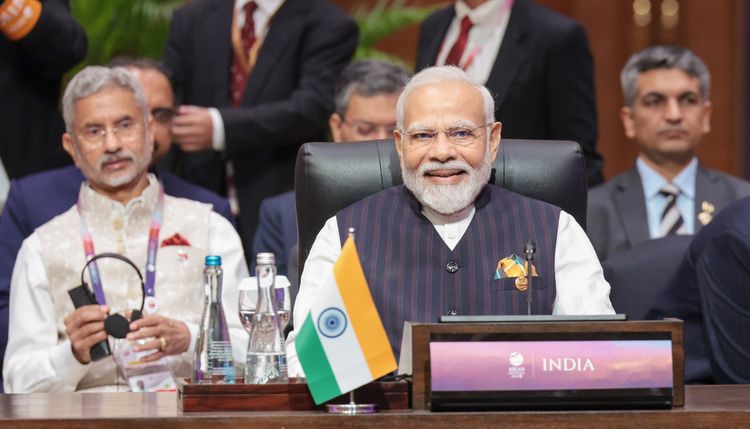
October 27, 2025
12:15 pm
Uris Hall, G08
Talk by Rohit Lamba (Economics, Cornell University)
India's pursuit of great power status faces a fundamental paradox: the economic nationalism that shapes its development strategy simultaneously undermines the global integration necessary for achieving its international ambitions. This article examines how India's current blanket commitment to strategic autonomy and self-reliance, while producing notable achievements, such as in digital infrastructure and financial inclusion, under Prime Minister Narendra Modi (2014-2024), ultimately constrains its ability to project power and influence globally. Drawing on developmental state theory, nationalism and civilizational-state typologies, and comparative analysis with East Asian success stories, I argue that India's economic nationalism operates through four transmission mechanisms—worldview constraints, state capacity limitations, decision-making pathologies, and foreign perception costs—that create a self-reinforcing feedback loop limiting its global reach. Highlighting India's distinctive political economy model as a premature and pluralist democracy specializing in high-skilled services, I argue that the country's development trajectory may be better served by strategies that leverage its democratic strengths and pursue an incremental but consistent reforms by consensus strategy while heeding Deng Xiaoping’s dictum of "hide your strength, bide your time" on the international stage. The analysis suggests that while India's fundamentals ensure respectable growth rates of 5-6%, achieving the 8-9% growth needed to fulfill its global ambitions before demographic dividends dissipate will require transcending the current overtly nationalist framework in the economic realm.
Rohit Lamba is an assistant professor of economics at Cornell University. He has previously held academic positions at the Pennsylvania State University, University of Pennsylvania, and New York University Abu Dhabi. He did his PhD in economics at Princeton University. He was also an economist at the Office of the Chief economic Adviser to the Government of India. His research spans economic theory and economic development. He is the co-author of the best-selling book Breaking the Mould: Reimagining India's Economic Future.
Additional Information
Program
Einaudi Center for International Studies
South Asia Program
Fictions of Capital: Extracting, Liquidating, and Fabricating Islamic Ceramics for a Global Market
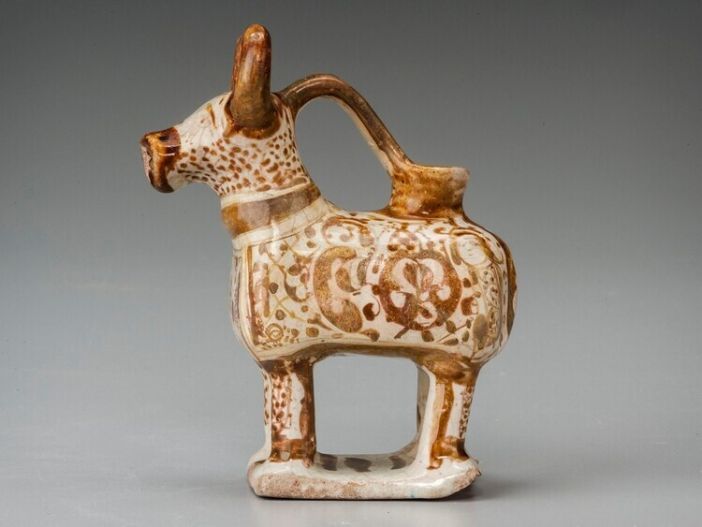
September 25, 2025
5:00 pm
Uris Hall, G08
Talk by Margaret Graves (History of Art and Architecture, Brown University)
Historical ceramics from the Islamic world are now held in elite collections worldwide. Many migrated westward during the turn-of-the-twentieth-century heyday of Islamic art collecting, a time when craft skills in the Middle East were being redirected towards a new market generated by the colonial project’s fanatical harvesting of artefacts: the faking, forging, and fictionalizing of antiquities. This lecture re-encounters ceramics faking and forgery in the Middle East as a form of highly skilled craft participation in modern global capitalism that was capable of creating stunning new objects of encounter. These fictionalized objects married manual and cerebral ingenuity to generate new objects of delight for elite collectors, in an environment where the structures of antiquities collection derive ultimately from both colonial-era resource extraction and the structures of international banking.
Margaret Graves is a specialist in the art of the Islamic world, with a particular research focus on the plastic arts (ceramics, metalwork, and stone carving) and the acts and contexts of making in the medieval and modern eras. Her first monograph, Arts of Allusion: Object, Ornament, and Architecture in Medieval Islam (Oxford University Press, 2018), looked at medieval artworks that make formal and conceptual allusions to architecture, placing these acts of material allusion into medieval Islamic intellectual history. Arts of Allusion won the 2019 book prize of the International Center of Medieval Studies and the 2021 Karen Gould prize from the Medieval Academy of America. Her new book, Invisible Hands: Fabrication, Forgery, and the Art of Islamic Ceramics (Princeton University Press, February 2026), explores the craft skills of ceramics faking and forgery for the nineteenth- and twentieth-century antiquities market. Other ongoing research topics include contemporary art that explores the legacies of colonial-era craft reform and heritage management in the Middle East; locating a global “golden age” of faking for the international antiquities market; and collaborations with conservators on the material lives of doctored objects.
Additional Information
Program
Einaudi Center for International Studies
Southwest Asia and North Africa Program
Catching Air: Risk, Conservation, and Health in Dominican Dive Fishing
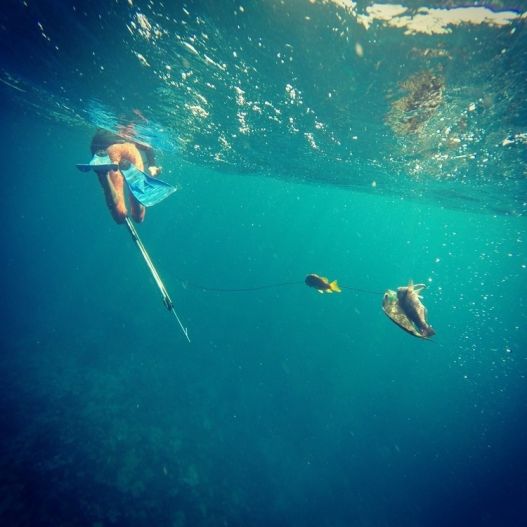
October 21, 2025
12:20 pm
Uris Hall, G08
The Caribbean has been identified as a region particularly vulnerable to changing climates, where conservation imperatives have advocated for the protection of fragile ocean ecosystems. As shifting ocean environments refigure marine ecosystems, making fish scarce in the shallows, diver fishermen along the coasts of the Dominican Republic dive deeper and stay longer in risky conditions. As a result, decompression sickness (the bends) has become a pervasive injury, and a way that coastal communities experience changing ocean health. In this talk, I examine the connections between bodily health and environmental health among Dominican diver fishermen, alongside the ways marine conservation initiatives further marginalize the health and well-being of fishing communities. Drawing from ethnographic research with divers who “caught air,” the local term for the bends, I argue that decompression sickness is a symptom of the overlapping injustices of ecologies in decline and colonial conceptualizations of conservation in the Caribbean.
Kyrstin Mallon Andrews is Assistant Professor of Anthropology at Syracuse University. Her work explores shifting ocean ecosystems, environmental politics, and experiences of health among spearfishermen in the Dominican Republic. Her articles and photo essays have appeared in American Anthropologist, Medical Anthropology Quarterly, and Current Anthropology.
Additional Information
Program
Einaudi Center for International Studies
Latin American and Caribbean Studies
Language Resource Center Speaker Series - Mijeong Mimi Kim - Implementing Undergraduate TAs in the Language Curriculum
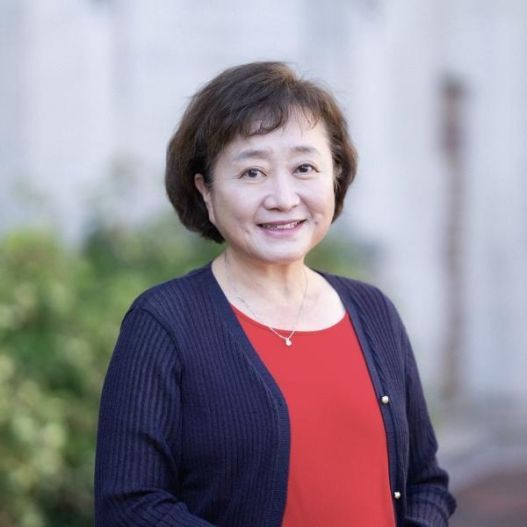
October 6, 2025
4:30 pm
Stimson Hall, G25
"Implementing Undergraduate TAs in the Language Curriculum"
Mijeong Mimi Kim
Teaching Professor of Korean Language and Director of Undergraduate Studies, Washington University in St. Louis
This presentation examines the strategic integration of Undergraduate Teaching Assistants (UTAs) into the Korean language program at Washington University in St. Louis, drawing from 15 years of implementation experience. The model can be adapted across diverse language instruction contexts, offering valuable insights applicable to language programs more broadly. The presentation highlights how UTAs create opportunities for improved language proficiency, increased speaking confidence, and enhanced cultural understanding through structured peer interactions. By facilitating additional practice opportunities, UTAs help build supportive learning communities both within and beyond classroom settings.
The session provides practical frameworks for effective UTA recruitment, training, and retention strategies adaptable to various language programs. As integrated members of the language curriculum, UTAs receive course credit and benefit from experiential learning through direct teaching practice, exposure to diverse cultural perspectives, and reflective examination of their own language use. Furthermore, the UTA model promotes diversity, equity, and inclusion by incorporating varied linguistic and cultural perspectives into the learning environment. UTAs foster inclusive and accessible learning spaces where students comfortably practice language skills, addressing individual learner challenges through targeted supplemental support. UTAs link formal instruction to authentic language experiences, establishing meaningful pathways for language acquisition and cultivating inclusive learning communities where learning becomes a shared and enriching experience.
Bio: Mijeong Mimi Kim is a Teaching Professor in the Department of East Asian Languages and Cultures at Washington University in St. Louis, where she serves as Director of Undergraduate Studies. She also coordinated the Korean language program through 2024. Since joining the university in 2002, she has taught Korean at all levels, developed curricula for both traditional and heritage learners, and founded the WashU Coalition for Language Teaching and Learning, which promotes collaboration among language faculty and students.
Dr. Kim's interests include language pedagogy, curriculum design, and technology-enhanced instruction. Drawing on critical pedagogy, she creates content-based curricula that immerse students in Korean culture through media, fostering both language proficiency and cultural agency. She is co-author of several textbooks, including the You Speak Korean OER series (2023), Advanced Korean (2021), and Tigers, Fairies, and Gods: Enchanting Folktales from Korea (2019). She has served on the Executive Board of the American Association of Teachers of Korean (AATK) and contributed to national initiatives such as the Standards-Based Korean Language Curriculum project and the Korean Honor Society (KHS). Dr. Kim is committed to student-centered pedagogy that integrates cultural literacy into language education, recognizing its transformative potential in cultivating global citizenship.
This event will be held in person in G25 Stimson and will also be streamed live over Zoom (registration required). Join us at the LRC or on Zoom.
The event is free and open to the public.
Additional Information
Program
Einaudi Center for International Studies
Latin American and Caribbean Studies
Language Resource Center Speaker Series - Fernando Rubio - The Rise of OER in Language Teaching and Learning
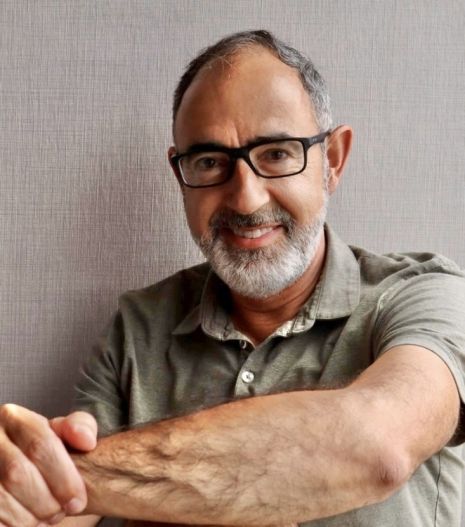
September 17, 2025
4:00 pm
Stimson Hall, G25
"The Rise of OER in Language Teaching and Learning"
Fernando Rubio
Director of the Center for Language Study, Yale University
Compared with STEM fields, second language (L2) education has only recently begun to embrace open education and the new knowledge ecologies it produces. L2 educators may have been hesitant to participate in the open education movement due to a lack of research which investigates the benefits and challenges of L2 learning and teaching in open environments. This talk contextualizes open education in L2 learning and teaching in terms of a dynamic ecology, along with a discussion of how the open movement affects L2 education beyond the classroom context. Also discussed will be the new ways of creating, adapting, and curating OER for language learning.
Bio: Fernando Rubio currently serves as the Director of the Center for Language Study at Yale University. Prior to that, he was a Professor of Spanish Linguistics in the Department of World Languages and Cultures and co-founder and Director of the Second Language Teaching and Research Center at the University of Utah. Over the past two decades, he has been actively involved in various professional organizations, including The Modern Language Association, The College Board, and ACTFL. He also served as president of the National Federation of Modern Language Teachers Associations.
Dr. Rubio's research interests lie in the fields of applied linguistics and teaching methodologies, with a focus on technology-enhanced language learning and teaching. He is the author of two textbooks, Tercer Milenio (Kendall-Hunt, 2009) and Juntos (Cengage, 2018). Additionally, he has co-edited the volume Hybrid Language Teaching and Learning: Exploring Theoretical, Pedagogical and Curricular Issues (Heinle, 2012) and co-authored Creating Effective Blended Language Learning Courses: A Research-Based Guide from Planning to Evaluation (Cambridge UP, 2020), which was honored with the 2019-2020 MLA Mildenberger Prize.
This event will be held in person in G25 Stimson and will also be streamed live over Zoom (registration required). Join us at the LRC or on Zoom.
The event is free and open to the public.
Additional Information
Program
Einaudi Center for International Studies
Latin American and Caribbean Studies
